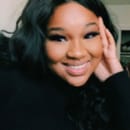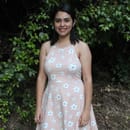Unfortunately, we live in a world that favors a particular type of person and if you do not fall under those specific categories of valuable attributes, then you’ll have a difficult time navigating your place in that given society. Of course, the way we would imagine who this model citizen is will vary. Who may be a valued member of society will depend on the context of that particular society based on factors such as time, geographic location, and social norms. And in the US, this is especially true. Simply put, American society values the lives of white, cisgender, heterosexual able-bodied individuals. However, in grander discussions on social justice issues rampant all over the world and in our America, it seems we seldom consider the strife people with physical and/or mental disabilities are faced with each day. This sentiment has been exacerbated by the global pandemic we are currently in and has presented a unique set of challenges that the dominant able-bodied population may not consider. For example, the dissemination of news is extremely vital as we continue to learn from health officials and the CDC about recent developments about the progression of COVID-19, stay-at-home protocols, and most recently, a possible vaccine. But where does this leave people with hearing, visual and cognitive impairments? In this article, I want to take a closer look at the deaf community and more specifically, the Black deaf community and the ways in which they’ve had to learn to adapt to an Anglo-American centric society and essentially, develop their own valid, vibrant communication system known as BASL.

Now you may ask why does it matter? BASL, like African American Vernacular English, or AAVE as it’s more commonly known, is largely if not entirely contextual (hence why cultural appropriation of the language and subsequent dialects is such a big issue; it’s always misused and/or discredited as an integral part of Black culture, often deduced to being “teen”/ “millennial” or American slang. FYI, it is not. It’s a way to communicate within the diaspora and is just as valid as standard English or any other language). For example, there are key grammatical differences between standard American English and AAVE such as the use of double negatives, which is highly frowned upon in standard English (i.e. I’d comfortably say ‘Don’t nobody care ‘bout allat’ whereas, in “professional” settings and/or around non-Black people of color and white people, I’d say ‘No one cares about that’). Now, that’s not to say that even if a non-Black person somehow managed to use the dialect correctly in a given situation, that it’d be well-received due to the fact that it can easily come off as ‘mocking’, ‘condescending’, and/or appropriating. So it’s more about learning how to understand us without demeaning us or feeling like you have to behave like us. But more importantly, the development, usage, and preservation of Black languages—which include but are not limited to: BASL, AAVE, Patois, Gullah, Louisiana Creole, Haitian Creole, and the 1,500-2,000 spoken languages in African countries—are an important part of our cultural diversity. Despite what some may believe, race is in every facet of our social sphere; language is no different. Many parts of our Black culture were created or expanded upon because we’d been excluded from dominant spaces and institutions, forcing us to make our own versions of things. So it’s absolutely important that we get recognition for not just what we’ve created as a result of discrimination and racial adversity but also for the vitality of the creation itself. I also assert that it’s ample time that we, as a society, get better representation for the disabled community—it’s not enough to just portray their experiences. Now more than ever, these stories need to be told from direct sources, as a way to combat stigmas about people with mental and physical challenges. I believe that educating ourselves on the innovations from their communities and then, sharing such information, will lead to more inclusive opportunities in mainstream entertainment and concurrently in healthcare, government, STEM institutions, and industries.
For more information about Black Deaf communities, you can check out these resources.



